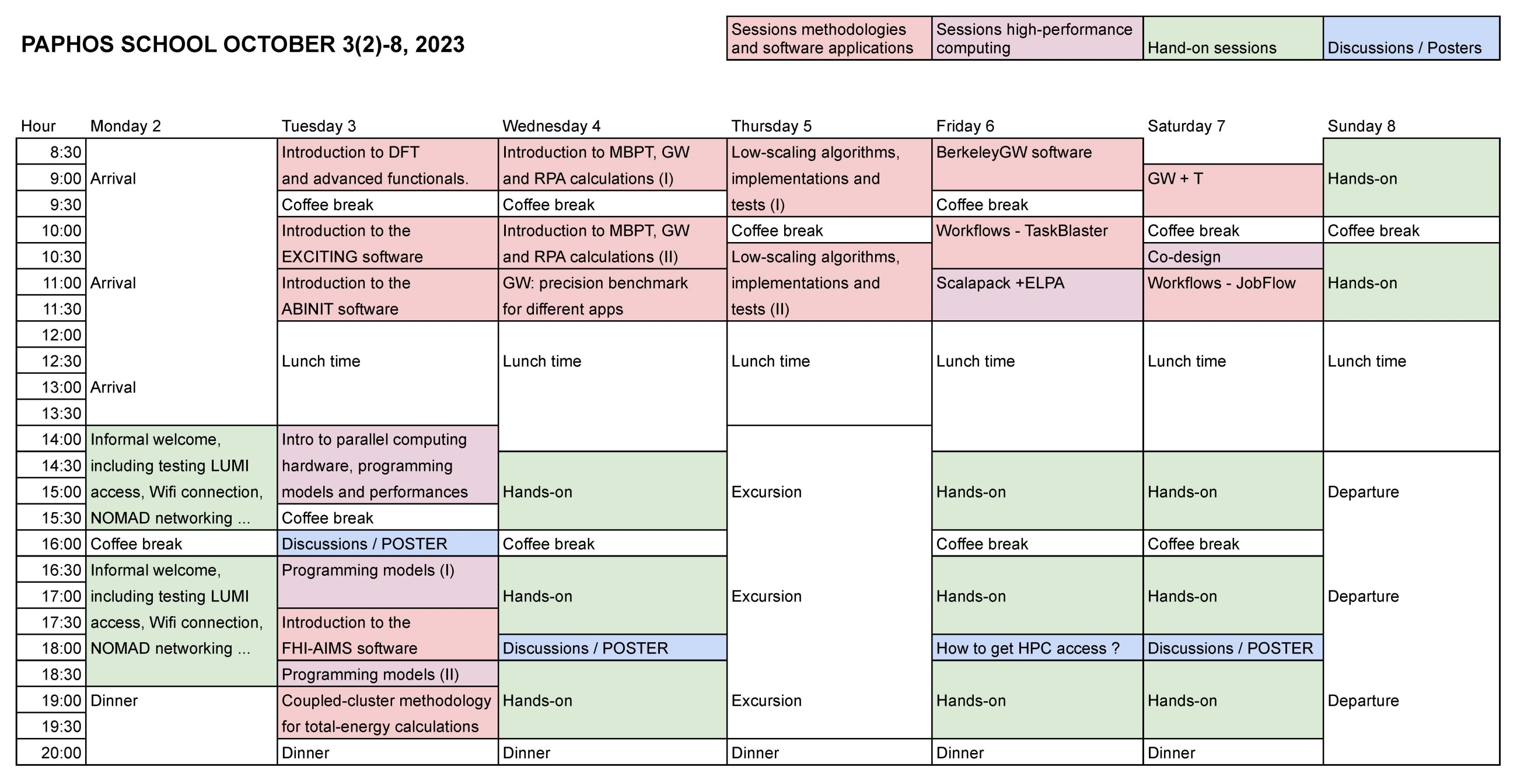In brief
On the first day, introductions will be given to advanced exchange-correlation functionals, many-body perturbation theory based on Green functions,
and supercomputers, followed by introductions to the three software applications used for the hands-on tutorials in the school, namely, ABINIT, Exciting and FHI-AIMS.
The others days will offer a mix of hands-on tutorials, some of them on LUMI, a powerful pre-exascale European Union system, and more advanced lectures on high-performance computing, low-scaling algorithms for Green function calculations, and workflows, as well as poster sessions, discussion sessions (e.g., how to write a successful HPC application), etc.
Program
Detailed program, slides of the presentations and other documents
Additional documents, including slides of the presentations, are available from the [NOMAD github] (https://github.com/nomad-coe/doctoral_school_paphos_2023).
Speakers and tutors
| Maryam Azizi | UC Louvain, Belgium |
| Volker Blum | Duke University, USA |
| Alex Buccheri | Max-Planck-Institute for the structure and dynamics of matter, Hamburg, Germany |
| Mauro Del Ben | Lawrence Berkeley National Laboratory, USA |
| Francisco A. Delesma | Aalto University, Finland |
| Jussi Enkovaara | CSC – Finnish IT center for science, Finland |
| Christoph Friedrich | Forschungszentrum Jülich, Germany |
| Matteo Giantomassi | UC Louvain, Belgium |
| Dorothea Golze | Technical University Dresden, Germany |
| Andreas Grüneis | Technical University Vienna, Austria |
| Petr Karpov | Max Planck Computing and Data Facility, Garching, Germany |
| Erwin Laure | Max Planck Computing and Data Facility, Garching, Germany |
| Miguel Marques | Martin-Luther-Universität Halle, Germany |
| Markus Rampp | Max Planck Computing and Data Facility, Garching, Germany |
| Lucia Reining | Ecole polytechnique Palaiseau, France |
| Gian-Marco Rignanese | UC Louvain, Belgium |
| Kristian Thygesen | Technical University of Denmark, Lyngby, Denmark |
| Jan Wilhelm | University Regensburg, Germany |

